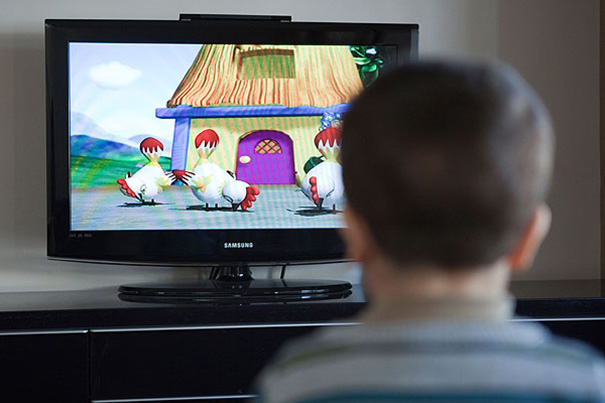
Over the course of a long-term study, each additional hour of television viewing was associated with seven fewer minutes of sleep daily, with the effects appearing to be stronger in boys than in girls. The study followed more than 1,800 children ages 6 months to 8 years old.
Courtesy of Wikipedia
TV a sleep detriment in children, study finds
Modest but steady effect tied to viewing minutes
A study following more than 1,800 children from ages 6 months to nearly 8 years old found a small but consistent association between increased television viewing and shorter sleep duration.
The report, by investigators at MassGeneral Hospital for Children and the Harvard School of Public Health, is featured in the May issue of Pediatrics.
Participants in the study, children and their mothers, were enrolled in Project Viva, a long-term investigation of the health effects of several factors during pregnancy and after birth. It analyzed information — reported by mothers when the children were around 6 months old and then annually for the next seven years — regarding how much time each day infants were in a room where a television was on, how much time older children watched television a day, whether children ages 4 to 7 slept in a room where a TV was present, and the average daily amount of sleep.
Each additional hour of television viewing was associated with seven fewer minutes of sleep a night, with the effects appearing to be stronger in boys than in girls. Racial and ethnic minority children were much more likely to sleep in a room where a television was present, and among those children, the presence of a bedroom television reduced average sleep by around 30 minutes a night.
The authors noted that the results supported previous short-term studies finding that both television viewing and sleeping in a room with a television decrease total sleep time, which can have negative effects on mental and physical health.





